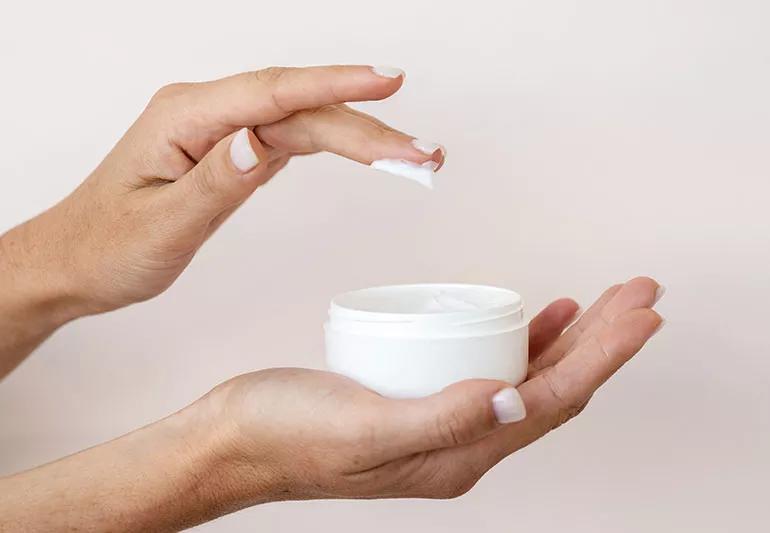The scoop on skin care for your derriere

Image content: This image is available to view online.
View image online (https://assets.clevelandclinic.org/transform/15ad05a8-eee5-4410-b431-32a48853e474/ButtMasks-1218369676-770x533-1_jpg)
A person dips their fingers into a small topical ointment container.
You have a cabinet full of skin masks, serums and creams. But why should the cheeks on your face get all the love?
Advertisement
Cleveland Clinic is a non-profit academic medical center. Advertising on our site helps support our mission. We do not endorse non-Cleveland Clinic products or services. Policy
Turns out, booty masks are a thing. Skin care companies sell sheet masks designed to deliver a soft, smooth butt. And if that’s not enough, the internet abounds with recipes for DIY butt scrubs and masks.
Could your backside benefit? Dermatologist Shilpi Khetarpal, MD, answers your burning questions about butt masks.
Butt masks got a boost during the coronavirus pandemic when people were getting more serious about self-care and at-home treatments, Dr. Khetarpal says.
You might wonder whether a mask for your bum is really necessary. That depends on your goals. Fans of masks for the derriere use them for a variety of reasons:
Advertisement
Most butt masks contain the same ingredients you’ll find in products for your face. For most people, these are perfectly safe to use on your bum, Dr. Khetarpal says. “Facial skin is usually more sensitive. If it’s safe for your face, it’s probably safe for your4 buttocks.”
Still, there’s always the possibility that skin care products can cause irritation or even an allergic reaction. To avoid a rash on the rear, Dr. Khetarpal recommends:
Home skin care remedies can be helpful and a fun way to pamper your skin. But depending on your concerns, butt masks might not be the best way to a radiant backside.
Pimple-like bumps on your bottom, for instance, aren’t always true acne. They may have other causes, such as:
The takeaway: Go ahead and try a mask, if that’s your thing. But if butt masks aren’t giving you the results you desire, don’t be afraid to see a dermatologist. “We treat skin conditions on any part of the body, ” Dr. Khetarpal says.
With a little TLC, your cheeks — and your other cheeks — will be smiling.
Advertisement

Sign up for our Health Essentials emails for expert guidance on nutrition, fitness, sleep, skin care and more.
Learn more about our editorial process.
Advertisement
Although it could be used as a moisturizer, this new trend is not recommended
It’s a great disinfectant for around your home, but not for your skin
Changes in texture, smell, color and performance are signs it’s time to throw the cosmetic item away
Strengthening your skin barrier, simple routines and minimizing products are ongoing, popular trends
Moisturizing, running a humidifier and adjusting your showers may help keep itchiness and irritation at bay
Glycolic acid benefits skin tone, texture and pigmentation by exfoliating dead skin
Some gentle soap and warm water go a long way when you’re washing these cosmetic tools regularly
New formulas are less drying and contain water-based and skin-loving ingredients
Prioritize your health by managing stress, strengthening your social connections and getting quality sleep
Bolsters, blankets, pillows and blocks can offer extra support, stability and comfort
Allergies, postnasal drip, asthma or reflux could be to blame for a cough that won’t quit